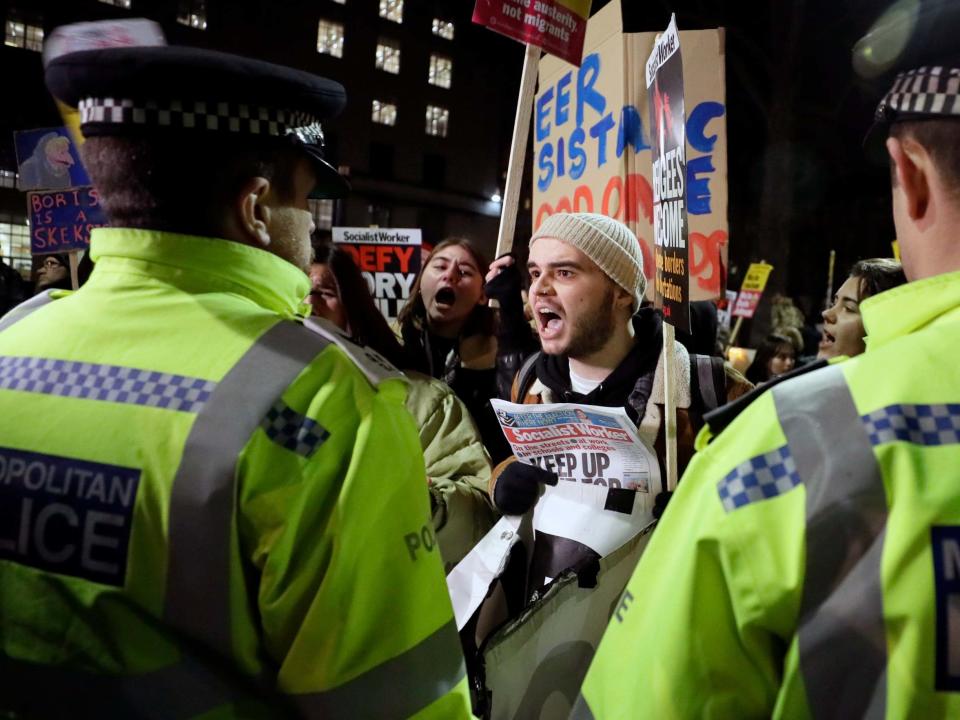For many, democracy is no longer working

In China, librarians are burning books that don’t comply with Communist Party orthodoxy. In Russia, Vladimir Putin tells the Financial Times that “liberalism” has become obsolete. In the United States, Donald Trump calls the free press “the enemy of the people”. In India, a Hindu chauvinist government passes an immigration law explicitly discriminates against Muslims.
Meanwhile, across Europe and the west, once-thriving democracies have been hollowed out, holding elections while an entrenched business and bureaucratic elite remain in power. Election after election, people go to the polls, vote for this party or that party, and nothing changes. So they take to the streets, sometimes burning tyres or battling police, because they feel their voices are no longer heard.
It’s little wonder voter turnout numbers are weakening. In elections held this year in Japan, Switzerland, Latvia, Chile, Poland, Slovenia, Luxembourg, Estonia, Ireland and Slovakia, more than 40 per cent of voters stayed home. Despite the importance of last week’s election in the UK, a third didn’t bother.
From the right and left, in the north and in the south, democracy is in deep trouble -- it’s like we’re living in the Weimar Republic, but on a global scale.
The growing crisis of democracy, the surge of populism and the unrest on the streets of Chile, Hong Kong, Baghdad, and Beirut was the major topic of discussion this year at the Atlantic Dialogues, an annual conference in Marrakech organised by the Policy Centre for the New South, a Moroccan think tank.
Such wannabe Davos summits are questionable forums to resolve the world’s giant problems. But at least the Atlantic Dialogues, with a focus on Africa and Latin America, brings together a more politically and culturally diverse set of voices than, say, the Aspen Security Conference.
Among those speaking at the event were former presidents of Nigeria (Olusegun Obasanjo) and Ecuador (Jamil Mahuad), as well as officials of the Arab League and the African Union. Former senior officials from Nigeria, Spain, Portugal, Senegal, France, Ethiopia, Malta, Costa Rica, Spain and El Salvador came and spoke, as did retired military officers from Mauritania and Senegal as well as the United States, and former diplomats from Portugal, France and Argentina.
Speaking at a panel I moderated on the decline of democracy were former Moroccan foreign minister Mohamed Benaissa and former Chilean minister of women’s affairs Laura Albornoz, as well as Indian women’s rights activist Trisha Shetty and Senegalese scholar Michelle Ndiaye.
“People want better spending, better solutions, more transparency more direct democracy,” said Albornoz, who served under former president Michelle Bachelet. She was speaking about Chile, but she could have been referring to dozens of countries.
“There’s a huge issue with the elites,” she said. “They have all the power. People want more legitimate representatives. They’re asking for democracy, but not the same one we have so far. Our socioeconomic model can’t provide any solutions.”
Benaïssa described a crisis of governance and leadership in much of the world, with demands for a “revision” of political models. “There is a decline in respect for institutions,” he said.
Ms Shetty, founder of the NGO SheSays, which advocates against sexual violence, voiced the frustrations of young people in India and elsewhere who are treated as “vote banks” rather than political actors with agency. “We’re not going to just show up and vote for you if you’re not going to make sure we can hold positions of power and privilege,” she said.
There was some discussion about adjusting the mechanics of elections to discourage more democratic participation. One Australian barrister attending the forum said he was shocked that countries like the United States and the United Kingdom continue to hold major elections on workdays, instead of declaring them holidays or holding them on weekends.
Perhaps the most bracing comments came from the representatives of young African countries looking to models for their future. Many were not persuaded by the admonitions against Russian and Chinese models of authoritarianism, dismissing them of phobias of western elites against emerging powers.
Ndiaye, director of the Africa Peace and Security Program at the Institute for Peace and Security Studies, said she believed Putin’s assertion that liberalism, defined as the set of Enlightenment principles held dear by the west, is obsolete.
“The fact there is a pushback from different societies symbolises what the crisis is all about,” she said. “And the fact that people are picking and choosing shows that the model is not the right model. We have capitalism without freedom and it’s working, and some countries in Africa are following that model.”
It’s time for everyone who cherishes democracy and liberal freedoms to face up to the reality that the model is in trouble. Clearly, years and years of ignoring the widespread discontent over democracy has not worked.
Read more
Why Boris Johnson’s election win puts British democracy at risk

 Yahoo News
Yahoo News 